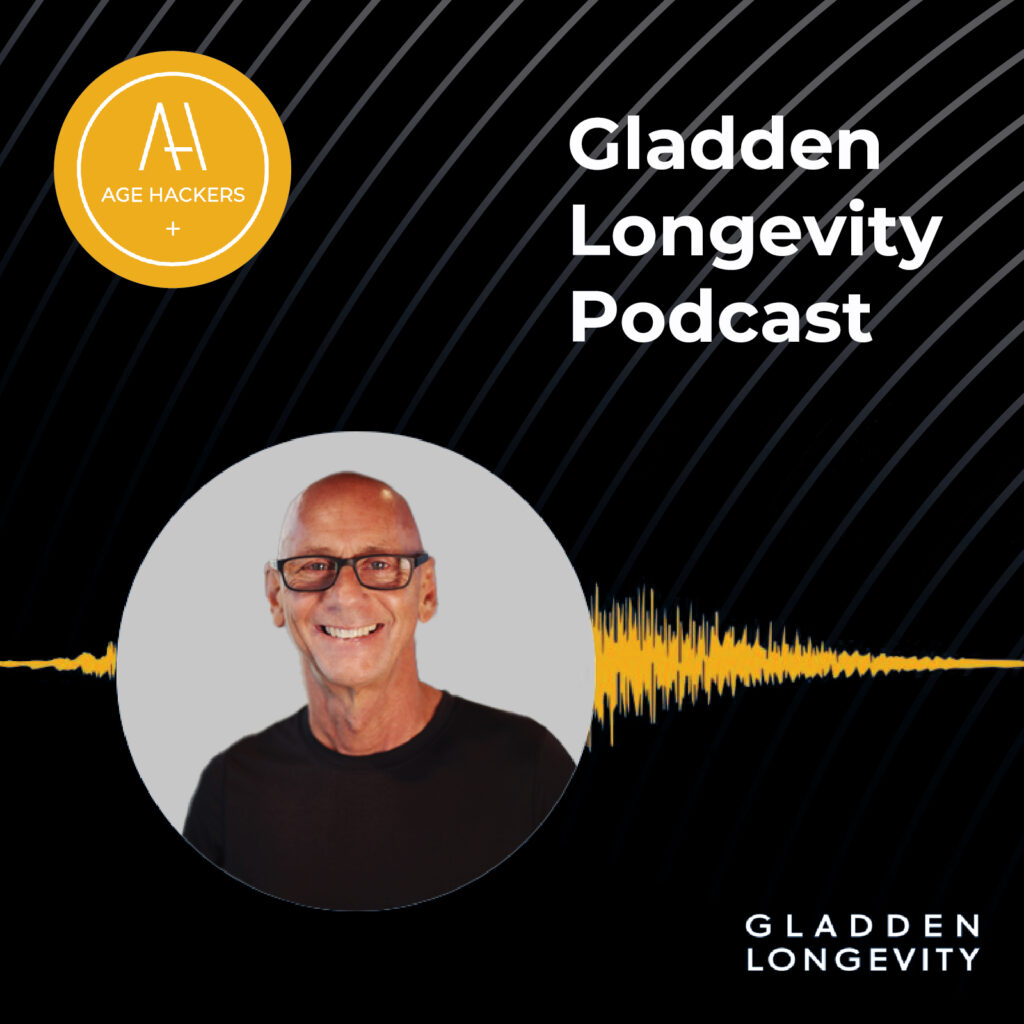Join Dr. Jeffrey Gladden, Steve, Dr. Brent, and Andrea Turnipseed in this episode of the Gladden Longevity Podcast. Dr. Brent Turnipseed, M.D., is the Co-Founder of Roots Behavioral Health and serves as their Medical Director. A board-certified psychiatrist with a deep interest in innovative approaches to providing behavioral healthcare, Brent sits on the Scientific Advisory Board for Ninnion Therapeutics, and he is the creator of all treatment protocols at Roots Behavioral Health. Andrea Turnipseed, LCSW, is Roots Behavioral Health’s co-founder and serves as their Executive Director. Andrea has training and a background in adult mental health and has worked with clients in acute inpatient and outpatient psychiatric settings, facilitating both group and individual therapy. She is trained in providing Ketamine-Assisted Psychotherapy. In this episode, they talk about all things psychological health, the use of Ketamine-Assisted Psychotherapy to treat depression, lifestyle habits that will improve brain health and boost well-being, and how our digital habits affect our brain health.
Listen to this episode to learn about making a 100 the new 30 and Living Young for a Lifetime!
Show Notes:
Dr. Gladden introduces Dr. Brent and Andrea Turnipseed as they talk about all things about psychological health. (0:35)
Andrea explains how they started as a traditional practice and how they found out that traditional medicine is not always working for their clients. (1:30)
Brent notes that over one-third of clients were not seeing improvements with traditional medicine. (3:00)
Brent shares that we are currently in a time when the paradigm is being questioned. (5:43)
Brent reveals that staying on antidepressants and other similar medications changes the physiology of how brain chemistry works. (7:15)
Brent points out that there are some genes that indicate whether a person will metabolize a medicine quickly or slowly. (9:20)
Andrea discloses that they ask about patients’ history and lifestyle when trying to help patients. (11:00)
Dr. Gladden recalls having read that neuroinflammation is associated with depression. (14:00)
Dr. Gladden says that neuroinflammation is interesting because aging comprises increasing mechanisms of inflammation. (16:10)
Dr. Gladden refers to what he is currently doing at Gladden Longevity called Brain Frequency, which is a modified form of transcranial magnetic stimulation. (18:34)
Brent brings up the observation that no one has really done a clinical trial in the last 20 years testing the effects of NAD. (20:32)
Dr. Gladden advocates that if you are interested in improving the energetics of the neuron, then getting intracellular NAD is what you are going to be after. (21:59)
Andrea talks about the effectiveness of ketamine and how about sixty percent of the time it works for people with treatment-resistant depression. (25:55)
Andrea points out that people seem to open up a little bit more after taking ketamine, and it helps them open up better than traditional therapy. (29:00)
Brent throws light on ketamine, its use, and its FDA approval status. (31:00)
Brent says ketamine is an NMDA receptor antagonist. (33:00)
Brent states that glutamate can be toxic if much of it floats around the body. (35:55)
Andrea says ketamine can be psychedelic. (37:40)
Brent clarifies that when some people are disassociating from their physical bodies, they feel like they are dying, but the presence of a therapist can be reassuring. (40:02)
Andrea presents how ketamine helps patients make sense of everything they have been told or be more receptive to the advice given. (45:55)
Brent cites studies that show ketamine, for many people, rapidly reduces suicidal thoughts, feelings and behavior. (47:30)
Brent really looks forward to the future with enthusiasm to make the treatment available to more people. (51:46)
Dr. Gladden reveals that there are many things you can start doing while waiting to get into the ketamine clinic that can serve you afterward. (53:39)
Steve wants to know how people outside Texas can access a ketamine clinic or a center. (56:40)
Dr. Gladden shares that if you are in Texas, Roots Behavioral Health does take insurance, and they provide ketamine. (58:45)
Dr. Gladden thanks Brent and Andrea for joining them. (59:10)
Visit our website, www.gladdenlongevitypodcast.com, for more information on this episode and other episodes as well. Click on the link to let us know what you’d like us to talk about on the podcast too!
Follow us on social media!
Instagram: @gladdenlongevity
Twitter: @gladdenlongevit
Facebook: @GladdenLongevity
LinkedIn: @GladdenLongevity
To learn more about Dr. Brent and Andrea, check out the following:
Website: https://rootsbehavioralhealth.com/
Email: frontdesk@rootsbehavioralhealth.com
Phone: +1 512-707-1629
Facebook: @Roots Behavioral Health
Instagram: @rootsbehavioralhealth
To get a complimentary consultation, call Roots Behavioral Health or email their front desk and let them know you heard from them on our podcast.







